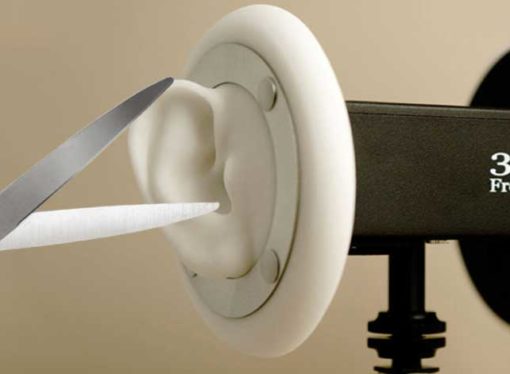Remember: You’ll never be as young as you are today!
Do you ever worry about ageing? While there’s no way around it, many of us find the thought of getting older a major stress. After all, it seems like only five minutes ago that we were children playing in our parents’ garden and then *BAM* suddenly we’re fully-grown adults. The idea of life running away with us is certain to be a stress, right?
You may think that the fear of getting older is a universal one that we all share no matter what, but is that really true? Are there ways you can calm your nerves about reaching your golden years while you’re still young? Well, the short answer is yes. In fact, recent research shows that there is a direct link between how you handle your finances and how you feel about the whole ageing shabang.

If you already have a solid handle on tracking your personal finances, you’re likely to fear your twilight years far less than other people, according to research from the Hiroshima University. The study participants were asked two major things during this piece of research; how financially literate and stable they were, and how anxious they felt about their post 65 years life. The results showed that the more people understood their finances, the less anxious they actually were.
So, what does that mean for you and I? Well, no matter how young or old you are right now, it could well be time to begin planning for the future. Retirement may be a lifetime away at the moment, but it doesn’t hurt to be prepared. The study also found that this ageing anxiety peaked among the participants who were aged 40 and above. That suggests that people put off thinking about the future until this point and then, ultimately, start to panic. Eek!
If you want to avoid just that problem, there’s one thing that you absolutely need to do sooner rather than later. You need to begin understanding your finances on a personal level. That may be easier said than done, but it’s by no means impossible. Once you start actively trying to take charge of your money, it will make all the difference. So, right now, your finances may seem like too much to handle, but they needn’t be.
So, where should you start? Well, if you want to make sure that you’re ahead of the game when it comes to your money woes, we might just have the answer. Here are some small things that you can do on a regular basis which will help. Remember, the more you make a habit out of keeping track of your money, the easier you will find it. It really is that simple!
1. Always pay with cash

While contactless payments have made life easier (to a certain degree), they likely make your budgeting a whole load harder. There’s something so very quick about paying for things in this way. You just hover your card over the machine and let the money roll on out of your account! Easy peasy. You can almost forget that you’ve just spent money at all… And, actually, that’s the problem. Living in a digital world means that you often forget that money is a real thing; it feels as though you’re just playing pretend with your finances.
Instead of using your card all the time, here’s something that you may well want to try. At the start of the month or, indeed, the week, get the money out that you will need. For example, if you want to spend £60 over the course of the next week, get that amount out of the machine. Next, leave your bank and credit cards at home. Doing so may feel a tad odd, but it’s certain to help you spend less. When you’re out and about, you will only be able to spend the cash that you have, which means that you will never go over your budgeted amount. Genius.
2. Or use a finance tracking app / Monzo

If cold, hard cash seems a little old school for your tastes, there’s another similar way that you can stay on top of your budget. Using a finance tracking app means that you can directly see how much you’re spending and what you’re spending it on. That means that you will have to wake up and pay attention to how much cash you spend on takeout coffee and meal deals at lunch time. Just knowing this information may help you save.
One of the best apps (and cards) you can use is the Monzo prepaid debit card. All you need to do is put the amount you want to spend on the card and then use it instead of your regular banking cards. That way, you won’t go over budget, and you will even get updates each time that you spend some cash. (Oh, and if you have the iOS version of the card, you will get monthly breakdowns of what you’ve spent too!)
Read: What is the Monzo card?
3. Divide your paycheck

Whether you’re a part-time working student or a full-time grafter, it’s well worth dividing your paycheck for different things. This process is all about managing your money and seeing what you can afford, and what you ought to skip. If you have a full salary, the 50/30/20 technique may well work for you. This is a tried and tested way of staying on top of the cash that you have coming in and, of course, going out. So, what should you do?
Well, it’s basically about dividing your income into manageable chunks. So, 50% of your earnings should go toward bills and payments — your rent, your electricity bill, your subscriptions etc. Allocate this amount and you will find it easy enough to cover all of the above.
Next, a huge 30% of your income can go toward entertainment and fun stuff — new clothes, nights out, takeaways… You get the picture. Finally, you should save that last 20% of your cash for the future. That way, you will have a pot of cash you can use in emergency situations of for big purchases, such as holidays and the like.
Read: How much should I have in my emergency fund?
4. Start saving for your future

This whole thing started because we were thinking about the future and, scarily enough, the whole ageing thing. While your golden years may seem like a whole long time away, it never hurts to start thinking about your future. Some of you may have a pension plan at work… (If you do, be sure to ‘opt in’ or you could miss out!).
If, for whatever reason, you don’t have one, you can start a private pension online at any time. NEST, the government subsidised scheme, is open to anyone and is excellent if you’re completely new to the world of saving. What’s more, once you’ve opened it, your boss or employer can make contributions too.
Oh, and don’t forget… If you’re over the age of 22 and in full-time employment, your employer will have a legal obligation to start contributing to your pension fund by the year 2018. It pays to get ahead and learn about this change in the law now so that you can make 100% sure that you get what you deserve from your boss.
Read: About Workplace Pensions Check out: NEST
5. Give yourself a weekly budget

Budgeting may sound like a rather dull topic, but it’s something that even the best of us absolutely have to do. If you don’t set yourself a weekly budget right now, it may well be time to change your ways. First of all, you should work out how much you can afford to spend on a week by week basis (the money dividing hack above may help!) and then use it when it comes to splitting your cash.
Of course, there are a load of things that can help. In fact, the Money Advice Service has a free budget planner than you can use online. All you need to do is input how much income you have and how much your bills generally are. Then, the planner will help you decide on an overall budget that you should aim to stick to on a weekly or monthly basis. Nothing could be easier!
Use: The Money Advice Service Budget Planner
6. Check your bank statements

Finally, here’s a personal finance tip that really ought to be obvious, and yet many of us fail to do it on a regular basis. You absolutely have to make sure that you go through your bank statements — whether you check them on your online banking or, indeed, on the paper copies that you likely get through the post.
Why should you bother doing this? Well, it’s simple. Sometimes, we have outgoings that we don’t even know about. You may have accidentally signed up to a monthly subscription or, worse, you may be being scammed. Keeping on top of these payments mean that you can deal with them (and get rid of them) sooner rather than later. Phew!



























